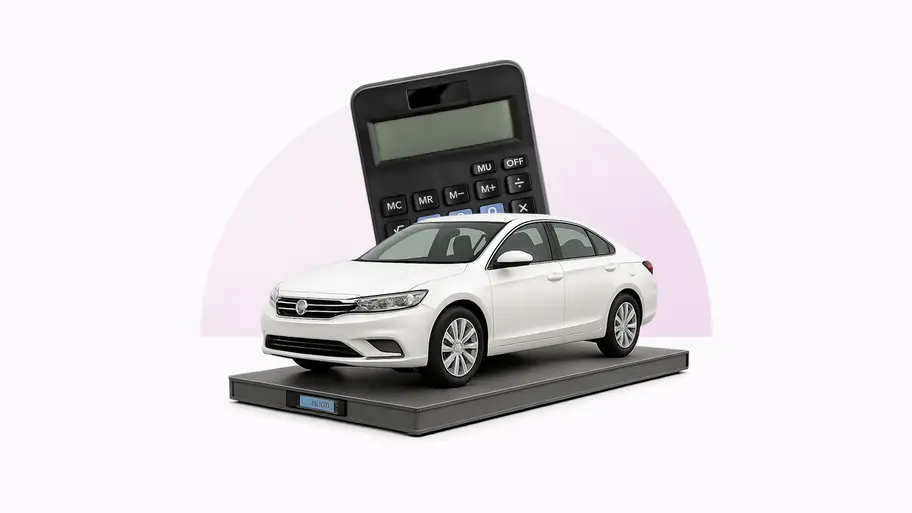Powered by Coverage.com (NPN: 19966249)
Coverage.com, LLC is a licensed insurance producer (NPN: 19966249). Coverage.com services are only available in states where it is licensed. Coverage.com may not offer insurance coverage in all states or scenarios. All insurance products are governed by the terms in the applicable insurance policy, and all related decisions (such as approval for coverage, premiums, commissions and fees) and policy obligations are the sole responsibility of the underwriting insurer. The information on this site does not modify any insurance policy terms in any way.
Best car insurance in Florida for 2026


Powered by Coverage.com (NPN: 19966249)
Coverage.com, LLC is a licensed insurance producer (NPN: 19966249). Coverage.com services are only available in states where it is licensed. Coverage.com may not offer insurance coverage in all states or scenarios. All insurance products are governed by the terms in the applicable insurance policy, and all related decisions (such as approval for coverage, premiums, commissions and fees) and policy obligations are the sole responsibility of the underwriting insurer. The information on this site does not modify any insurance policy terms in any way.
Best car insurance companies in Florida
The average cost of car insurance in the Sunshine State is $324 per month for full coverage and $88 per month for minimum coverage, according to rate data from Quadrand Information Services. While auto insurance rates in Florida are typically among the highest in the country, Bankrate's analysis can help you find the best car insurance to suit your budget and coverage needs.
Bankrate Score
Avg. monthly premium
Full coverage
Avg. monthly premium
Min. coverage
Why Progressive made our list: Progressive provides various easy-to-use digital tools that could make your search for the best auto insurance in Florida faster and easier. Its Name Your Price tool populates coverage options based on your budget, and you can even compare rates from different companies right from Progressive’s website. The national carrier also offers its Snapshot telematics program, which provides customers with opportunities to save on premiums based on their driving habits.
| Bankrate Score | 4.4 |
| J.D. Power | 606/1,000 |
| AM Best Rating | A+ |
Progressive standout features
- Offers rideshare coverage
- Snapshot telematics program
- Teen driver discounts
Bankrate Score
Avg. monthly premium
Full coverage
Avg. monthly premium
Min. coverage
Why Geico made our list: Geico might be the best car insurance in Florida for drivers who value simple digital tools and self-service options over working with an agent in person. With a highly-rated mobile app and a full-service website, policyholders can make policy changes and payments and file claims online, usually without agent intervention. Geico also offers some of the cheapest average premiums in Florida for minimum coverage policies and plenty of discount opportunities, which could be enticing for budget-conscious drivers.
| Bankrate Score | 4.3 |
| J.D. Power | 660/1,000 |
| AM Best Rating | A++ |
Geico standout features
- Robust digital tools
- DriveEasy telematics
- Offers partner-backed Mexico auto insurance
- Nationwide coverage
Bankrate Score
Avg. monthly premium
Full coverage
Avg. monthly premium
Min. coverage
Why State Farm made our list: State Farm typically has some of the cheapest car insurance rates in Florida for full coverage policies. This carrier also offers numerous potential discounts that could help you save even more. Parents with young drivers may especially be interested in this company due to its Steer Clear program, which may help offset the higher premiums younger drivers tend to pay and might help instill safe driving habits.
| Bankrate Score | 4.3 |
| J.D. Power | 639/1,000 |
| AM Best Rating | A++ |
State Farm standout features
- Robust digital tools
- Steer Clear Program for young drivers
- Drive Safe & Save telematics program
- Low average premiums

Bankrate Score
Avg. monthly premium
Full coverage
Avg. monthly premium
Min. coverage
Why Allstate made our list: Although Allstate isn’t the cheapest option on average in Florida, you might find some unique perks and benefits most competitors don’t have. Along with the Deductible Rewards program, which lowers your collision deductible by $100 each year you are accident-free, Allstate also offers new car replacement, car buying services and even an extended vehicle care program.
| Bankrate Score | 3.9 |
| J.D. Power | 660/1,000 |
| AM Best Rating | A+ |
Allstate standout features
- Safe Driving Bonus program
- Allstate Digital Footprint
- Pay-per-mile coverage available
- Diverse coverage options
The Bankrate Promise
Read our full methodologyAt Bankrate, we strive to help you make smarter financial decisions. While we adhere to strict , this post may contain references to products from our partners. Here's an explanation of . Our content is backed by Coverage.com LLC, a licensed entity (NPN: 19966249). For more information, please see our
78
years of industry experience
10
licensed staff
34.5K
ZIP codes examined
120
carriers reviewed
Powered by Coverage.com (NPN: 19966249)
Coverage.com, LLC is a licensed insurance producer (NPN: 19966249). Coverage.com services are only available in states where it is licensed. Coverage.com may not offer insurance coverage in all states or scenarios. All insurance products are governed by the terms in the applicable insurance policy, and all related decisions (such as approval for coverage, premiums, commissions and fees) and policy obligations are the sole responsibility of the underwriting insurer. The information on this site does not modify any insurance policy terms in any way.

Compare auto insurance rates
Powered by Coverage.com (NPN: 19966249)
Coverage.com, LLC is a licensed insurance producer (NPN: 19966249). Coverage.com services are only available in states where it is licensed. Coverage.com may not offer insurance coverage in all states or scenarios. All insurance products are governed by the terms in the applicable insurance policy, and all related decisions (such as approval for coverage, premiums, commissions and fees) and policy obligations are the sole responsibility of the underwriting insurer. The information on this site does not modify any insurance policy terms in any way.
How to find the best car insurance in Florida
The best car insurance company in Florida is different for everyone. Beyond the cost of car insurance, there are various factors to consider, such as customer service, eligibility, coverage needs and more. To help you focus on the factors that matter to you most, review the following:
Learn more about Florida car insurance:
Frequently asked questions
Methodology
Rates
Bankrate utilizes Quadrant Information Services to analyze November 2025 rates for all ZIP codes and carriers in all 50 states and Washington, D.C. Rates are weighted based on the population density in each geographic region. Quoted rates for our base profile are based on the following characteristics and full coverage limits with bundling and paperless billing discounts applied:

Bodily injury liability
$100,000 per person$300,000 per accident
Property damage liability
$50,000 per accidentPersonal injury protection
$100,000 per accidentUninsured motorist bodily injury
$100,000 per person$300,000 per accident
Collision deductible
$500Comprehensive deductible
$500To determine minimum coverage limits, Bankrate used minimum coverage that meets each state’s requirements. These are sample rates and should only be used for comparative purposes. Your quotes will differ.
If otherwise specified, the base profile has been modified with the following driver characteristics:
Other profiles
Bankrate Score
Our Bankrate Score for auto insurance considers key variables that our insurance editorial team determined impact policyholders’ experiences with an insurance company. These factors include a robust assessment of each company’s cost of coverage, product availability, financial strength ratings, online capabilities and customer and claims support accessibility. We grouped these factors into three essential categories — cost and ratings, coverage and savings, and support — which we then weighted in a tiered approach.
Each category was assigned a metric to determine performance, and the weighted sum adds up to a company’s total Bankrate Score — out of 5 points. Our scoring model provides a comprehensive view, indicating when companies excel across several key areas and highlighting where they fall short.
- Tier 1 (Cost & ratings): To determine how well auto insurance companies satisfy these priorities, our team analyzed quoted premiums from Quadrant Information Services (if available), as well as any of the latest third-party agency ratings from J.D. Power, AM Best, Demotech and the National Association of Insurance Commissioners (NAIC).
- Tier 2 (Coverage & savings): We assessed companies’ coverage options and availability to help policyholders find a provider that balances cost with coverage. Additionally, we evaluated the discount options listed on each company’s website.
- Tier 3 (Support): To encompass the many ways an auto insurance company can support policyholders, we analyzed avenues of customer accessibility along with community support. This analysis incorporated additional financial strength ratings from S&P and Moody’s and factored in a company’s corporate sustainability efforts.
Tier scores are unweighted to show the company's true score in each category out of a possible five points.





